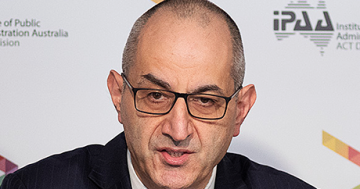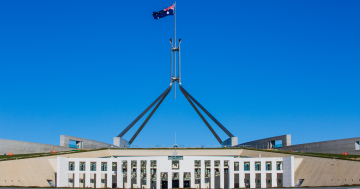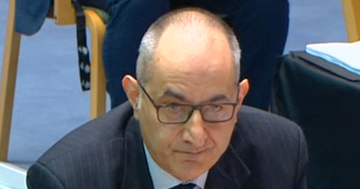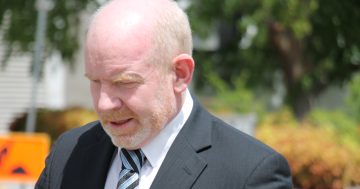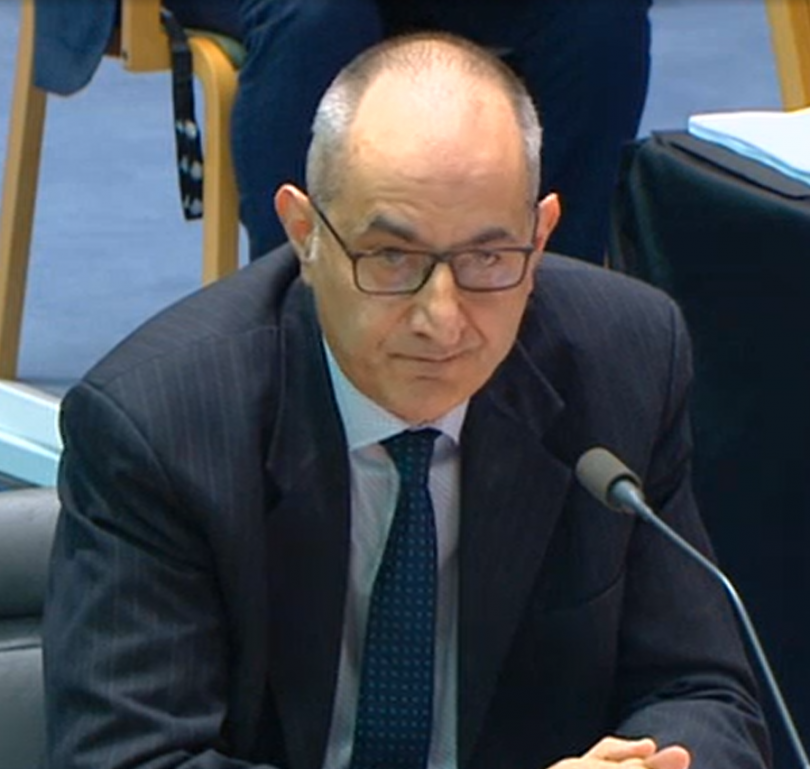
Home Affairs Secretary Michael Pezzullo. Photo: Screenshot.
There’s at least one person at the Department of Home Affairs who thinks it’s a good place to work and that’s the boss.
Secretary Mike Pezzullo appeared before parliament’s Joint Committee of Public Accounts and Audit on Friday (10 February) and found himself having to defend his workplace’s culture, as well as some of the department’s contracts and procurement processes.
In an at-times combative session of the committee’s hearings, Mr Pezzullo was grilled over why his department rated so poorly in Australian Public Service Commission reports on staff satisfaction.
The 2022 Census found morale at the agency could be better, with 49 per cent of employees saying they would recommend it as a good place to work, and only 43 per cent saying the department inspired them to do their best work every day.
Staff repeatedly appear to have issues with a lack of autonomy, pay and flexible work options.
In Friday’s hearing, Mr Pezzullo described the culture in his department as “mixed” and “mission-driven”.
But he blamed wage disparity and fragmentation across the public service as the real cause of low morale.
“I think that there is a wage apartheid that’s emerging in the public service through the fragmentation of pay arrangements that has occurred over about a 10 to 15-year period,” he said.
He told the committee he would like to be able to pay his staff more without having to offset the increases against key mission capability.
“The public service, through a lot of managerialist ideological changes made in the 1990s, has become a much more fragmented body,” Mr Pezzullo said.
“There’s the service delivery operations, the military wing, the field wing, and then there’s other parts.
“I think wages are just really just a symptom of that. You chase talent, you see the departments that can afford to pay for relatively few numbers of people then jacking up the top level of bands, for instance, the top of an EL1, the top of an EL2.”
He also said he had to make a “devil’s choice” when asked about his department’s $1.5 billion people-smuggling surveillance contract – which has cost taxpayers more than $400 million more than first agreed.
Mr Pezzullo admitted the contract was not best practice, but that his hands were tied.
“The funding model is fundamentally deficient,” he said.
“I either go to government and say, I actually am going to terminate this contract because I’m concerned about value for money … to which the government then says OK, but we don’t have a detention capability or we don’t have a coastal vessel fleet capability, we don’t have a maritime surveillance capability…
“Well, then I’m only left with one tool, which is contract variations and extensions. It’s a devil’s choice.”
The secretary took issue with the Australian National Audit Office reporting serious recurring problems with his department’s procurement practices, saying “people who work in offices in Canberra” had written the reports.
“I’m not going to accept the characterisation of endemic underperformance,” Mr Pezzullo said.
“We don’t necessarily agree with the conclusions of the ANAO.”













